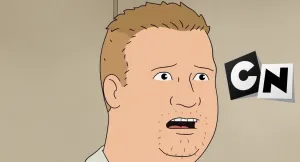Another meeting has taken place between the Writers Guild of America and the Alliance of Motion Picture & Television Producers, amid the ongoing writers’ strike. The news of the latest was broken on Thursday afternoon, revealing that WGA members met with studio representatives earlier in the day. More talks are reportedly on the horizon, with multiple CEOs of major studios expected to hold a joint call on Friday to suggest future moves. CEOs expected to participate in that call include Netflix’s Ted Sarandos, Warner Bros. Discovery’s David Zaslav, NBCUniversal’s Donna Langley, and Disney’s Dana Walden and Alan Bergman.
Videos by ComicBook.com
There is no current indication if these talks will result in a deal between the WGA and the AMPTP, as reports stress that streaming residuals and television staffing minimums still remain point of contention. According to Variety‘s reporting on the matter, there is a chance that the two parties might arrive to an agreement on other issues they are more in agreement about, in hopes of pushing towards an overall resolution.
When Did the WGA and AMPTP Meet?
Earlier this month, it was reported that WGA chief negotiator Ellen Stutzman and WGA West general counsel Tony Segall met with the AMPTP, but a potential deal was stalled over two key issues. According to the reporting on the meeting, the biggest issues to remain after the meeting concern episodic television, particularly minimum staffing levels and a guaranteed minimum number of weeks of employement. The AMPTP reportedly still views the WGA’s proposals on those topics “non-starters.”
The reporting also revealed that the SAG-AFTRA actors’ strike, which began last July, is further complicating the negotiations. Reportedly, Stutzman and Segall told the AMPTP that even if a deal is closed with the WGA, the writers will not start work until both strikes are resolved. That being said, sources cited in the report say that both sides expect to continue communicating in the next few days, after communicating with their respective groups.
Why Are the WGA Striking?
The WGA have cited a slew of reasons for the strike, which began on May 1st and has already had a domino effect on the larger industry. The union hopes to see improvements in residuals from media streamed online, as well as additional benefits and safeguards against artificial intelligence potentially being used to write stories instead of real writers.
“Though we negotiated intent on making a fair deal — and though your strike vote gave us the leverage to make some gains — the studios’ responses to our proposals have been wholly insufficient, given the existential crisis writers are facing,” the WGA said in a statement on May 1st. “We must now exert the maximum leverage possible to get a fair contract by withholding our labor.”
The statement continued: “The WGA Negotiating Committee began this process intent on making a fair deal, but the studios’ responses have been wholly insufficient given the existential crisis writers are facing. The companies’ behavior has created a gig economy inside a union workforce, and their immovable stance in this negotiation has betrayed a commitment to further devaluing the profession of writing. From their refusal to guarantee any level of weekly employment in episodic television, to the creation of a ‘day rate’ in comedy variety, to their stonewalling on free work for screenwriters and on AI for all writers, they have closed the door on their labor force and opened the door to writing as an entirely freelance profession. No such deal could ever be contemplated by this membership.”








